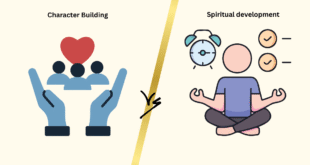The journey of human growth does not end with adolescence. After the exciting and often turbulent teenage years, individuals enter young adulthood, a transformative stage marked by independence, self-discovery, and life-defining decisions.
This period, typically between 18 and 25 years, bridges the gap between childhood and full-fledged adulthood. It is when young people transition into higher education, careers, relationships, and personal responsibilities that will shape the rest of their lives.
In this article, we will explore child development stages – young adulthood, focusing on the physical, emotional, cognitive, social, and moral changes that occur during this critical stage. Whether you are a parent, educator, or young adult yourself, understanding these milestones will provide insight into navigating this period successfully.
What is Young Adulthood?
Young adulthood is a developmental stage that begins when an individual reaches legal and social adulthood, usually around age 18, and continues until the mid-20s. Psychologists often refer to this as “emerging adulthood.”
According to Jeffrey Arnett, a leading developmental psychologist, emerging adulthood is a distinct phase of life characterized by exploration, identity formation, and gradual transition into adult roles. It is a time when individuals are no longer adolescents but may not yet feel like fully independent adults.
Erik Erikson’s Theory:
In Erikson’s psychosocial stages, this period corresponds to Intimacy vs. Isolation, where young adults seek meaningful relationships and connections. Success leads to strong bonds and a sense of belonging, while failure can result in loneliness and isolation.
Why Young Adulthood is a Critical Stage
The 18-25 age range is crucial for personal growth and societal contribution. Decisions made during this time influence education, careers, relationships, and health for years to come.
Key reasons for this stage is vital:
- Establishment of career paths and financial independence.
- Development of long-term relationships and family planning.
- Formation of core values and personal identity.
- Laying the foundation for physical and mental health in later life.
- Increasing social responsibility and community engagement.
Understanding these dynamics is essential for parents and mentors to provide appropriate support without stifling independence.
Physical Development in Young Adulthood
By the late teens and early twenties, most individuals have reached their full physical maturity. However, young adulthood is also a period where lifestyle choices significantly affect long-term health.
Key Physical Milestones:
- Peak Physical Performance
- Strength, endurance, and reaction time are at their highest.
- Athletes often achieve their best performance during this stage.
- Bone density and muscle mass reach maximum levels.
- Brain Development Continues
- The prefrontal cortex, responsible for decision-making and impulse control, finishes maturing around age 25.
- This explains why young adults may still struggle with risky behavior and long-term planning.
- Sexual and Reproductive Maturity
- Fertility reaches its peak during these years.
- Sexual identity becomes firmly established.
- Health Risks and Habits
- Lifestyle choices regarding diet, exercise, sleep, and substance use have long-term consequences.
- Many chronic diseases can be prevented by healthy habits established in this stage.
Tips for Supporting Physical Development:
- Encourage regular exercise and balanced nutrition.
- Emphasize the importance of adequate sleep and stress management.
- Avoid harmful substances like tobacco, drugs, and excessive alcohol.
Cognitive Development in Young Adulthood
Cognitive growth doesn’t stop after adolescence. Young adulthood brings advanced intellectual abilities as individuals face complex life decisions.
Key Cognitive Advancements:
- Abstract and Critical Thinking
- Young adults analyze abstract concepts and think critically about global issues.
- Example: Evaluating career paths or philosophical questions.
- Problem-Solving and Decision-Making
- Improved ability to consider multiple perspectives and outcomes before making decisions.
- Goal-Oriented Thinking
- Setting long-term personal, academic, and career goals becomes a priority.
- Practical Intelligence
- Applying academic knowledge to real-life challenges, such as budgeting, job hunting, and relationship management.
- Self-Reflection and Learning
- Increased capacity for self-awareness and adaptability.
Emotional Development in Young Adulthood
The emotional landscape of young adulthood is complex. This stage involves forming an independent identity while balancing relationships, ambitions, and self-care.
Key Emotional Changes:
- Identity Solidification:
Individuals finalize their beliefs, values, and life purposes.
Example: Choosing a profession or spiritual path. - Emotional Regulation:
Increased ability to manage emotions like anger, frustration, and love. - Intimacy and Relationships:
Romantic relationships become deeper, often leading to long-term commitments like marriage. - Resilience Building:
Young adults face failures and setbacks that teach coping mechanisms and perseverance. - Self-Esteem and Confidence:
Achievements in academics, career, or relationships boost self-worth.
Parenting Tip:
Encourage independence while offering emotional support. Listen without judgment as young adults navigate their challenges.
Social Development in Young Adulthood
Young adulthood is a socially dynamic period. Relationships expand beyond family to include peers, colleagues, and romantic partners.
Key Social Milestones:
- Building Relationships
- Establishing friendships based on shared values and goals.
- Romantic relationships become more serious and stable.
- Independence from Family
- Moving out, living independently, or attending college strengthens self-sufficiency.
- Workplace Integration
- Entering the workforce brings exposure to diverse social environments.
- Community Engagement
- Volunteering and social activism often emerge during this stage.
Moral and Spiritual Development
During young adulthood, individuals develop a personal value system and moral compass.
- Ethical Decision-Making:
Teens rely on external rules, but young adults begin making independent moral judgments. - Spiritual Exploration:
Some deepen their faith, while others question and redefine spiritual beliefs. - Empathy and Social Responsibility:
Increased awareness of global issues such as poverty, climate change, and justice.
Practical Tip:
Encourage open discussions about ethics, spirituality, and service to society.
Challenges in Young Adulthood and How to Overcome Them
| Challenge | Solution |
| Career uncertainty | Explore internships, mentorships, and career counseling. |
| Financial instability | Learn budgeting and financial planning early. |
| Relationship conflicts | Practice effective communication and conflict resolution skills. |
| Mental health struggles | Seek counseling or therapy when needed. |
| Peer and societal pressure | Develop self-awareness and confidence in personal values. |
| Work-life balance | Prioritize tasks and set healthy boundaries. |
Role of Parents and Mentors
Even though young adults seek independence, parents and mentors remain vital in offering guidance without control.
Ways to Support Young Adults:
- Respect Independence
- Avoid micromanaging decisions.
- Allow space for mistakes and growth.
- Provide Emotional Support
- Be a safe place for open conversations about fears, dreams, and failures.
- Offer Practical Life Skills
- Teach essential skills like cooking, financial management, and networking.
- Encourage Goal Setting
- Help them set achievable short- and long-term goals.
- Stay Updated on Mental Health Awareness
- Recognize signs of depression, anxiety, or burnout.
The Impact of Technology on Young Adults
Technology plays a central role in this stage, influencing education, work, and relationships. While digital tools offer opportunities, they also come with risks.
Positive Impacts:
- Access to online education and career resources.
- Opportunities for networking and entrepreneurship.
- Easier communication with peers and family.
Negative Impacts:
- Social media comparison leading to low self-esteem.
- Digital addiction and reduced face-to-face interaction.
- Privacy and cyber-security risks.
Tip:
Encourage healthy digital habits, such as setting screen-time limits and following mindful technology practices.
Signs of Developmental Concerns
Sometimes, young adults may face challenges that require professional intervention. Look out for:
- Persistent lack of direction or motivation.
- Severe anxiety or depression.
- Substance abuse issues.
- Difficulty maintaining relationships or employment.
Early support can prevent long-term difficulties and ensure healthy adult development.
Preparing for Full Adulthood
By the end of young adulthood, individuals should have developed the skills and maturity needed for independent adult life.
Key Areas of Preparation:
- Financial Literacy:
Budgeting, saving, and investing responsibly. - Career Path Development:
Identifying long-term professional goals. - Healthy Relationships:
Building trust, respect, and effective communication. - Personal Growth:
Developing resilience, self-awareness, and lifelong learning habits. - Community and Social Responsibility:
Understanding the importance of giving back to society.
Conclusion
The child development stage of young adulthood (18-25 years) is a transformative time filled with opportunities, challenges, and profound growth. It is the period when individuals establish their independence, refine their identities, and lay the foundation for lifelong success and happiness.
For parents, educators, and mentors, understanding this stage is crucial. By offering guidance, empathy, and the right balance of freedom and structure, you can support young adults in navigating this exciting yet demanding phase of life.
As young adults step into the world, they carry the lessons of childhood and adolescence while shaping their unique paths. With the right support, they can thrive as confident, responsible, and compassionate members of society.
 Edutarbiyah English Blog of Parenting and Tarbiyah
Edutarbiyah English Blog of Parenting and Tarbiyah



